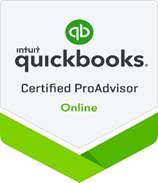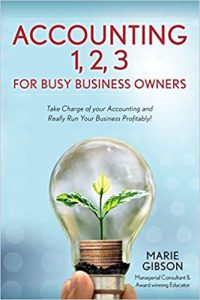As we move solidly into this new year, we want to take a look at our systems and make changes that will help us run our business profitably, safely and securely. The beginning of the new year is the time that feels like we can do anything….like we can do everything… and changes are so much easier now.
Improving our systems to reduce fraud and employee theft is imperative for a business owner. Becoming a victim of fraud is a horrible experience and we never think it will happen to us. However, if it does happen, it can wreak financial damage, sometimes significant enough to put us out of business. It’s a time-consuming business disruption which often involves accountants, lawyers, credit bureaus, bank executives, and IRS and state tax agents (our favorite people, right?). Worst of all, it’s a betrayal by one or more fellow human beings, sometimes relatives; an intimate violation that can leave us emotionally scarred for quite a while
The purpose of today’s article is to get you thinking about this business threat, demonstrate some common ways your accounting system can be used to hurt you, and urge you to make a plan to protect yourself against fraud so you reduce your chances of becoming a victim.
Here’s a partial list of just a few common ways that someone with access to your accounting system can make off with your money.
Paying bills you don’t owe
For example, if your business and your bookkeeper both owe Pacific Gas and Electric, make sure the check that is written from the business account is going to cover your account balance and not theirs. It’s a common fraud act to pay personal bills from the company account and although it seems like it might be a relatively small amount, it can add up quickly.
Also watch out for repeat requests for reimbursements of the same receipts as well as overstated expenses; or watch for vendors that you don’t recall. The easiest way to watch for this is to look at the original invoice and initial it when you sign the checks. Yes-that means that when you sign the checks that you should look at them and scan the associated invoices.
PayPal, ATM withdrawals, and petty cash violations
Make sure you have the same controls on your bank accounts as you do on your petty cash accounts. It’s easy for employees to abuse PayPal accounts, ATM withdrawals, and other cash equivalents if proper controls are not in place. If more than one person has access to these accounts, you must develop a checks and balances system to protect the funds.
Lackadaisical oversight
When the cat’s away…. don’t let the mice play.
One consultant’s clients were living overseas while a cousin was supposed to be handling their bills. The clients were unable to access their accounts online, so they began asking for bank statements. When they didn’t get them, they suspected something was up. They finally had to request the bank statements from the bank and found that their cousin was paying both the clients’ bills and their own bills from their account. It took four to five years to straighten out, plus a huge bookkeeping bill, and they never recovered all of the lost money.
You would hope people don’t take advantage of you when you are in a weak spot, but it didn’t happen in the next story. A Florida CPA tells of a bookkeeper and manager who stole over $250,000 while an owner was out trying to recover from a liver transplant. They took money that should have gone to pay payroll taxes. By the time the owner got the IRS letter telling him of the problem, the bookkeeper and manager were long gone.
If you will be away from the business for awhile, be sure that you hire a neutral third party to help oversee your finances and accounts while you are gone. Again, the term checks and balances come into mind-a system that prevents all the access to finances to belong to one or two people.
Sales irregularities
Another CPA alerted me to this story. When a customer attempted to return an item to the store, the receipt could not be found. A former employee pocketed over $19,000 worth of cash sales by deleting not only his sales receipts but the sales receipts of other employees. Journalist Tim Hahn of the Erie Times-News wrote, “the employee admitted to taking the money in order to pay his college tuition.”
Angry employees
An attorney terminated his bookkeeper but let her work a few extra weeks. The angry and indignant employee deleted billings worth thousands of dollars right before she left. The attorney ultimately had to hire a consultant to reconstruct the damage.
It’s dramatic in movies when the bad guy actors escort fired employees directly out of the building but it may be a good thing to limit the access that terminated employees have to your bank accounts and your records.
Collusion
When the bookkeeper is a close friend of a bank teller, it can spell trouble. They can go in together to draft fraudulent checks and pull money out of a business owner’s account, it can spell fraud. This happened to an attorney; and to his credit, he noticed some irregular transactions on the bank statement and blew the whistle. You may wonder-like I do-how people think they can get away with this, especially when it’s an attorney. It doesn’t matter if it’s an attorney, a doctor, a retail or manufacturing business…all business owners need to protect themselves from fraud.
Fraud never ends well, so the best thing to do is to put measures in place to prevent it as much as possible. It’s impossible to prevent fraud 100%, but it makes sense to do as much as is cost-effective to avoid catastrophic losses that can bring an entire business down.
If we can help you to set specific steps in place to protect your business, please don’t hesitate to contact our office. There’s a special chapter in Marie’s book, Smart Books=Smart Business; How to Take Charge of Your Accounting and Really Run Your Business Profitably that has some additional great tips to help you reduce the chances of theft and fraud in your business. Be sure to request a copy today from our website or from Amazon.com.
(Thanks to Caren Schwartz of Time and Cents Consultants, LLC for the Connecticut-based stories.)








